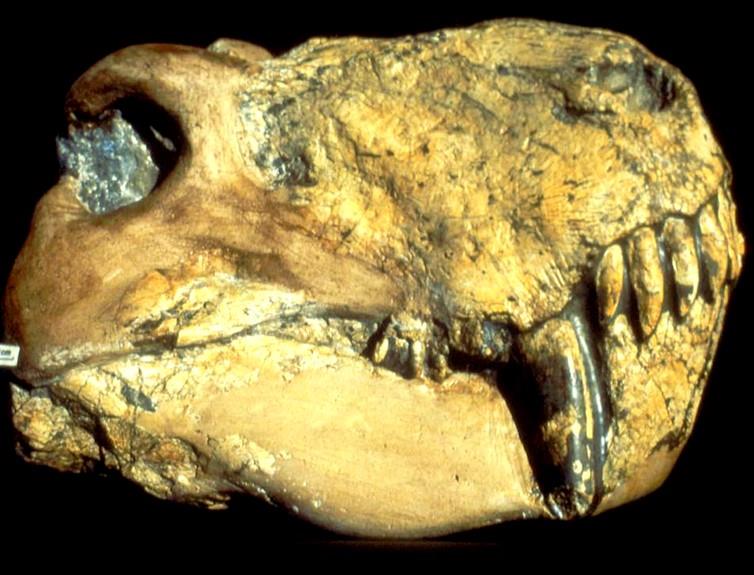KAROO NEWS - A new fossil centre, which will be hosting the internationally acclaimed Rubidge Collection of Karoo paleontologist Professor Bruce Rubidge, grandson of Sydney Rubidge, will soon be opening in Graaff-Reinet.
This palaeontological centre, currently under renovation, is situated in Parsonage Street and will be an important field-based research hub for South Africa - it will serve as the nucleus of a world-class research and exhibition centre to enhance the offerings of Graaff-Reinet, the Karoo Midlands and South Africa as a go-to destination.
Graaff-Reinet is noted for the large number of fossils that have been found in the area, largely because of the fossils collected by palaeontologists like Sidney Rubidge.
This remarkable collection, which was amassed through the enthusiasm of Sidney Rubidge, is housed at the family farm, Wellwood, in the Graaff-Reinet district and has been curated by the Rubidge family for nine decades.
The first fossil discovered by Rubidge was a Dinogorgon skull. Dinogorgon is a genus of gorgonopsid from the Late Permian period that roamed South Africa and Tanzania between 160 million and 252 million years ago. The generic name Dinogorgon is derived from Greek, meaning "terrible gorgon", while its species name rubidgei is taken from the surname of Bruce Rubidge, who has contributed to much of the research conducted on therapsids of the Karoo Basin.
Bruce, who grew up at Wellwood, later qualified as a paleontologist, and spent the last three decades heading the palaeontology department at the University of the Witwatersrand.
He now lives in Graaff-Reinet and is working on this exciting project that will open the wonderful world of fossils to the public.
The center, which will have a strong educational focus, will operate on four fronts:
- Palaeontological Research Centre - having national and international research collaborations and running field-based research programmes for scientists and students,
- Display and Exhibition Centre - showcasing the Rubidge Fossil Collection with a clear message to preserve biodiversity and using this to encourage young people into considering science as a career,
- Palaeo- and Geo-tourism Centre - giving visitors an experience of how palaeontologists discover and research fossils in the field,
- Educational Outreach Centre -offering curriculum-based scientific programmes to expose learners to past biodiversity to enhance their understanding of extant fauna and flora.
As an inaugural event, in September 2024 the centre will host the 22nd Conference of the Palaeontological Society of Southern Africa. This event will attract top international scientists to the town.
 The skull of Dinogorgon rubidgei - the first fossil discovered by Sidney Rubidge.
The skull of Dinogorgon rubidgei - the first fossil discovered by Sidney Rubidge.
‘We bring you the latest Garden Route, Hessequa, Karoo news’
















